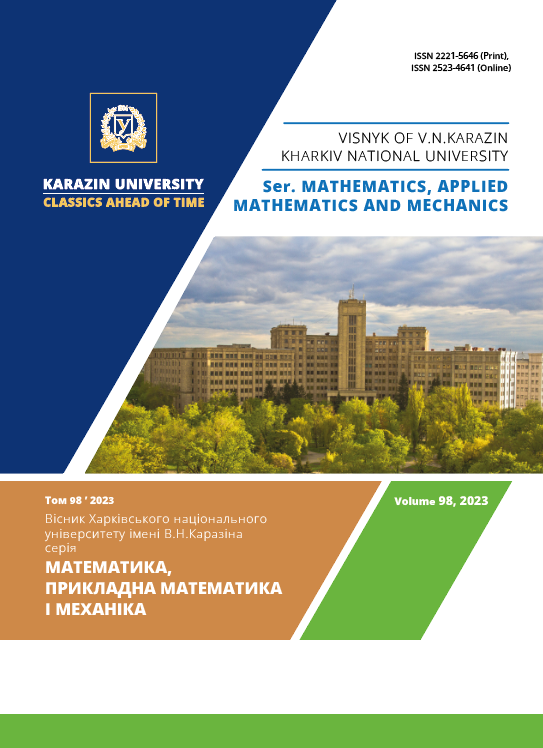On integration with respect to filter
Abstract
This article is devoted to the study of one generalization of the Riemann integral. Namely, in the paper, it was observed that the classical definition of the Riemann integral over a finite segment as a limit of integral sums, when the diameter of the division of the segment tends to zero, can be replaced by a limit of integral sums over a filter of sets, which can be described in a certain "good way". This idea was continued, and in the work we propose a new concept - the integral of a function over a filter on the set of all tagged partitions of a segment. Using of filters is a very good method in questions related to convergence or some of its analogues in general topological vector spaces. Namely, if the space is non-metrizable, then the concept of convergence is introduced precisely with the help of filters. Also, using filters, you can formulate the concept of completeness and its analogues. The completeness of spaces is one of the central concepts of the theory of topological vector spaces, since Banach spaces are complete. That is, using a generalization of the completeness of spaces constructed using filters, we can explore various generalizations of Banach spaces. We study standard issues related to integration. For example, does the integrability of the filter function imply its boundedness? The answer to this question is affirmative. Namely: the concept of filter boundedness of a function is introduced, and it is shown that if a function is integrable over filter, then its integral sums are bounded over the filter, and this function itself is bounded in the classical sense. Next, we showed that the filter integral satisfies the linearity property, namely, the integral over filter of the sum of two functions is the sum of the filter integrals of these functions. In addition, we can to subtract the constant factor from the sign of the integral over filter. We introduce the concept of an exactly tagged filter, and with the help of such filters we study the filter integrability of unbounded functions on a segment. We give an example of a specific unbounded function and a specific filter under which this function is integrable. Next, we prove a theorem that describes unbounded filter-integrable functions on a segment. The last section of the article is devoted to the integration of functions relative to the filter on a subsegment of this segment.
Downloads
References
V. Kadets. A course in Functional Analysis and Measure Theory. - 2018. DOI: http://doi.org/10.1007/978-3-319-92004-7
V. Kadets, D. Seliutin. Completeness in topological vector spaces and filters on $mathbb{N}$, Bulletin of the Belgian Mathematical Society, Simon. - 2021. - No 28. - P. 531-545. DOI: http://doi.org/10.36045/j.bbms.210512
M.C. Listan-Garcia, f-statistical convergence, completeness and f-cluster points, Bull. Belg. Math. Soc. Simon Stevin. - 2016. - No 23. - P. 235-245. DOI: http://doi.org/10.36045/bbms/1464710116
Citations
On differentiation with respect to filters
Seliutin Dmytro (2025) Visnyk of V. N. Karazin Kharkiv National University. Ser. Mathematics, Applied Mathematics and Mechanics
Crossref
Copyright (c) 2023 Dmytro Seliutin

This work is licensed under a Creative Commons Attribution-NonCommercial-NoDerivatives 4.0 International License.
The copyright holder is the author.
Authors who publish with this journal agree to the following terms:
1. Authors retain copyright and grant the journal right of first publication with the work simultaneously licensed under a Creative Commons Attribution License that allows others to share the work with an acknowledgement of the work's authorship and initial publication in this journal. (Attribution-Noncommercial-No Derivative Works licence).
2. Authors are able to enter into separate, additional contractual arrangements for the non-exclusive distribution of the journal's published version of the work (e.g., post it to an institutional repository or publish it in a book), with an acknowledgement of its initial publication in this journal.
3. Authors are permitted and encouraged to post their work online (e.g., in institutional repositories or on their website) prior to and during the submission process, as it can lead to productive exchanges, as well as earlier and greater citation of published work (see The Effect of Open Access).




